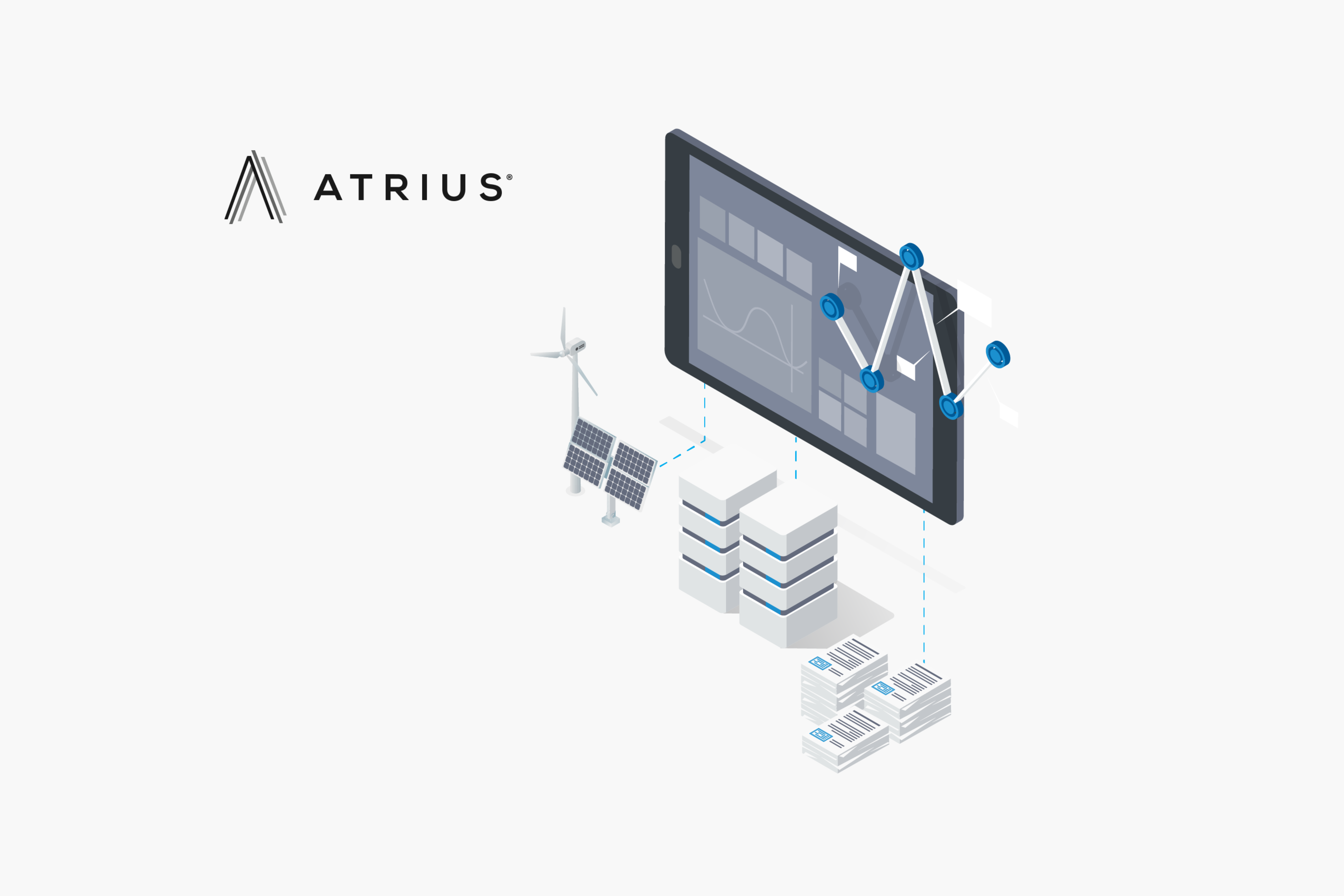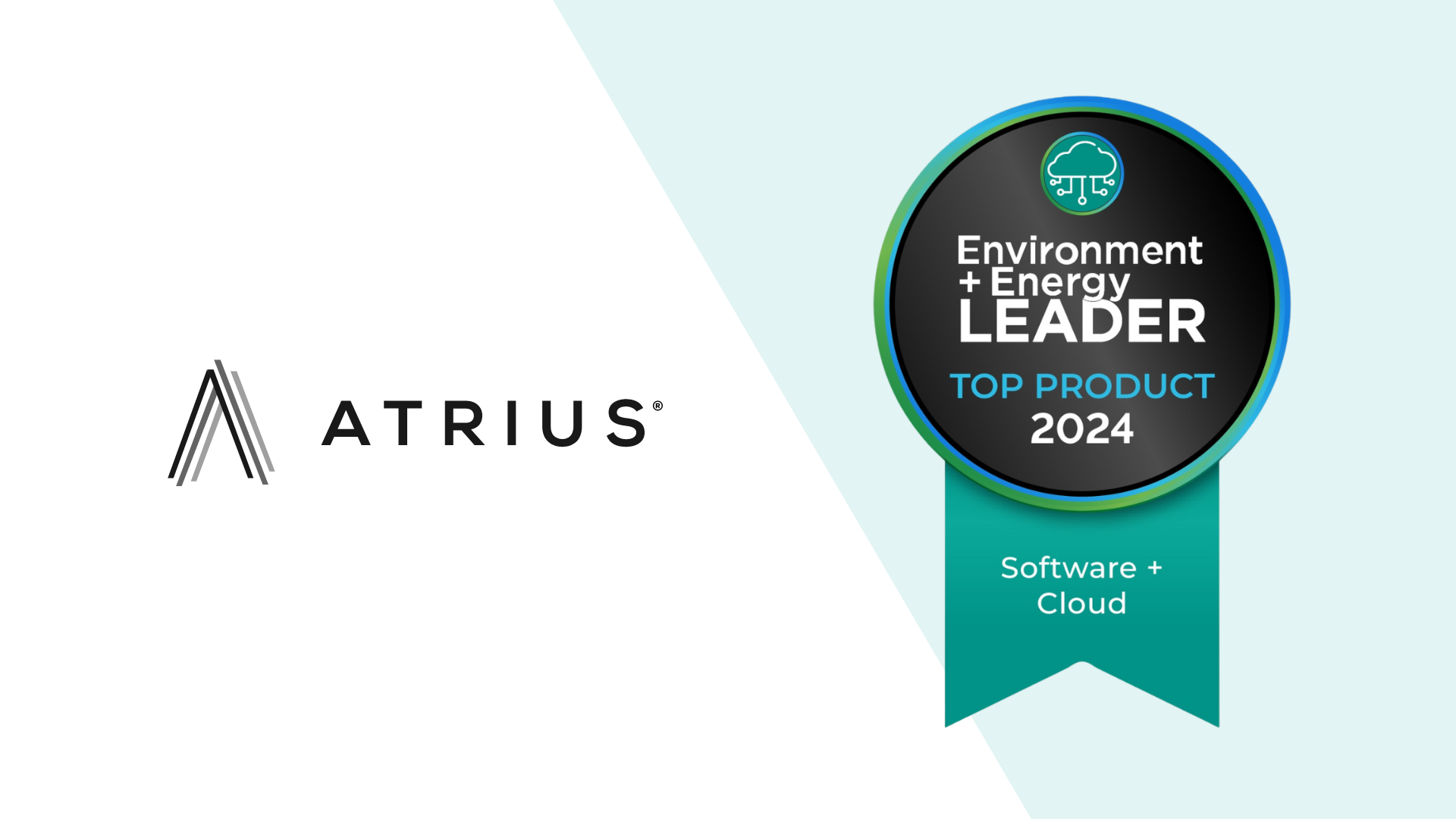View the original news release here.
Atlanta, GA – June 15, 2022 – Atrius, part of Acuity Brands, Inc. (NYSE: AYI), announced today that its market-leading Atrius Sustainability, a cloud-based energy management information system, unveiled new features to make emissions management and reporting easier than ever before. These new capabilities enhance what was already the most comprehensive platform on the market to help facilities managers, sustainability leaders, and building performance experts achieve their Environmental, Social and Governance (ESG) goals.
“For more than 15 years, we’ve been helping customers reduce the environmental impact of their buildings. Atrius® Sustainability is what companies need to transition into the future of ESG reporting, which will soon be a core part of the capital market, affecting every public company,” said Andrew Blauvelt, director of product, Atrius a part of Acuity Brands. “New SEC regulations set to take effect in 2023 require companies to disclose their complete emissions impact with their annual financial reporting. In addition to better informing markets, this new level of disclosure will force companies to live up to their net-zero pledges and set more companies on the path towards considering sustainability throughout their entire supply chain. Atrius Sustainability’s new automated carbon accounting features will help companies move beyond spreadsheets for emissions tracking to meet the demand for transparency.”
Other newly added features on Atrius Sustainability’s lightweight framework include an enhanced process flow, the ability to set baseline for trend analysis, and automated data management, all on a platform that is easy to use and deploy.

Today, many companies are manually tracking their internal energy use (Scope 1) and indirect emissions from purchased electricity (Scope 2), but new requirements expand tracking to the entire supply chain (Scope 3). Scope 3 factors are all the other emissions that a company influences, whether from vendors or suppliers, upstream or downstream. The SEC estimates that the new climate reporting proposal will cost companies more than $10.2 billion and many anticipate this to be the most costly regulations since the Sarbanes-Oxley Act of 2002.
“While many companies currently track Scope 1 and 2 data, the Scope 3 area is more complex and far-reaching. Whether you are going for net-zero or just starting out on your sustainability journey, Atrius Sustainability can support clients as more in-depth reporting becomes mandatory,” said Chelsea Davis, product manager, Acuity Brands. “Companies that are doing some tracking are in a better place to start, but this increasing urgency to address climate change means this ‘nice to have’ aspect of reporting will be a requirement to mitigate greenwashing.”
Failure to cut greenhouse gas emissions is speculated to cost the U.S. economy $14.5 trillion over the next 50 years, and global research shows that the effects of climate change could reduce economic output by $23 trillion a year. “The time for action is now,” added Blauvelt. “This is what Atrius Sustainability was built for and we’re enthusiastic for companies to move beyond fear of non-compliance, to see the benefits from meeting the new standards in the fight against climate change.”
To learn more about the new regulations that will ask all publicly traded companies to calculate and submit emissions impact with their annual financial reporting, or review the latest Atrius Sustainability’s features, visit our website.



